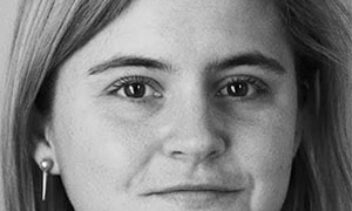When I was studying in yeshiva, there was a curious fellow named Aryeh who was always researching the most bizarre questions. When everyone else was studying Talmud [Gemara], you could sometimes find him calculating the dates of the different kingdoms in Tanach to see if they added up historically. I always enjoyed speaking with him because he seemed really committed to finding out if Judaism was real or not. As I mentioned, as a kid, the narrative of people leaving religious life was usually couched in terms of a hedonistic rebellion. They just want to smoke and hang out, I was told, or maybe, told myself. Aryeh is a different model. He has a rigid fealty for truth—sometimes, in my opinion, too rigid. He approached questions with the focus and analytic rigor of a philosopher. I’ve openly wondered to him whether the philosophical heuristics and scientific questions he employs would produce viable answers in other disciplines like marrying your wife or how to raise your children. I’ve always admired his analytic abilities, but I sometimes wonder if they are applied too broadly. Of course, I’m not advocating for anyone to, so to speak, turn their brain off. But I wonder if some questions—particularly those broad questions about how to live your life and build relationships—require a different strategy.
Even though he chose another direction, he continues to articulate the value and importance of connecting with grace and understanding with those who left.
Since our time in yeshiva, Aryeh’s life has taken quite a different turn. He left, in most respects, the Orthodox community. This wasn’t an easy decision for him—he was already married with children. He details much of his story in a moving open letter. After leaving, however, Aryeh began a moving effort—he started a Facebook group called Frum/OTD Dialogue, which now has nearly three thousand members. I continue to admire Aryeh a great deal. As a fellow admin of the group, I see firsthand how Aryeh is extraordinarily sensitive and ensures that religious life is not denigrated in the group. In fact, there is an openness and humbleness with which he looks at religious observance. No, he’s no longer traditionally religious, but after spending years looking for concrete truth, there are few people who understand the merits (and challenges) of religious life like him.
He’s often approached by members of the group looking to leave. His first reaction is usually to provide reasons to stay. He’s sent many people who have approached him to speak with me. I, of course, don’t have answers, but see religious struggle and questioning not as a sign of religious morbidity, but as remaining vitality looking to be nourished. And, to be clear, the questions and ideas he grapples with are not simple. They are rarely discussed in our schools and shuls. And perhaps rightfully so. The reward inherent in introducing the most difficult theological questions en masse is not so easily justified by their concomitant risk. But if there is anyone worth speaking to before evaluating the relative merits of a religious life, Aryeh is one of them. His life went in a different direction, but I have found few people as dedicated to truth, honesty, and humility as him. He wrote an entire primer dedicated to the existence of God. Normally, you’d expect an outreach organization to develop something like that, but Aryeh is committed to carefully weighing all options. And, speaking of options, he wrote a separate compendium on Pascal’s wager. Even though he chose another direction, he continues to articulate the value and importance of connecting with grace and understanding with those who left. He remains a crucial voice on religious decision-making—a topic others rarely treat with his philosophical depth. With Aryeh, of course, it’s easy. He’s a friend who has taught me and so many others so much. And I hope, despite his philosophical jargon, you’ll learn something, too.
Listen in to our podcast with Philo Judaeus.








